Custom RC Drill Bit Manufacturer in China
Our RC Drill Bits are engineered for efficient and accurate reverse circulation drilling. Designed for optimal performance in mineral exploration and mining, they ensure reliable sample recovery with minimal contamination. Built with durable materials for extended life and effective penetration in various formations, our RC Drill Bits contribute to faster, cost-effective drilling operations and enhanced geological analysis.
Sinodrills - Your Trusted RC Drill Bit Manufacturer from China
Sinodrills, your trusted RC drill bit manufacturer based in China, specializes in producing high-performance reverse circulation drill bits. We engineer durable and efficient RC drill bits for reliable sample recovery in mining and exploration. Partner with Sinodrills for quality and cost-effective drilling solutions.
Various RC Drill Bit
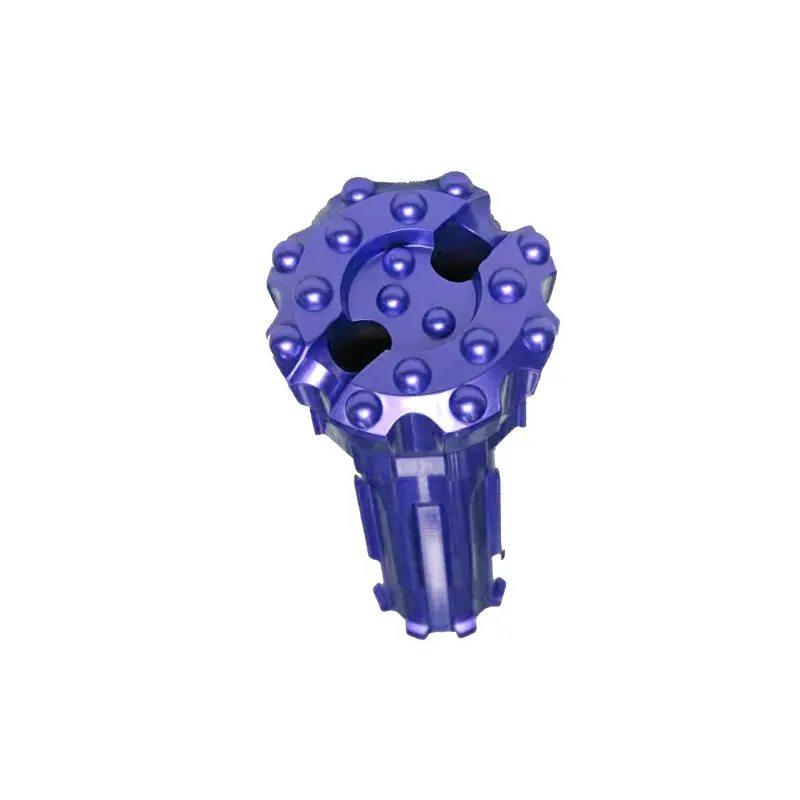
rC drill bits
We supply a wide range of robust and high-performance RC drill bits, engineered for efficient reverse circulation drilling in diverse geological conditions. Our drill bits ensure optimal sample recovery, accuracy, and longevity, contributing to cost-effective and productive mineral exploration and mining operations. Choose our reliable RC drill bits for your drilling needs.
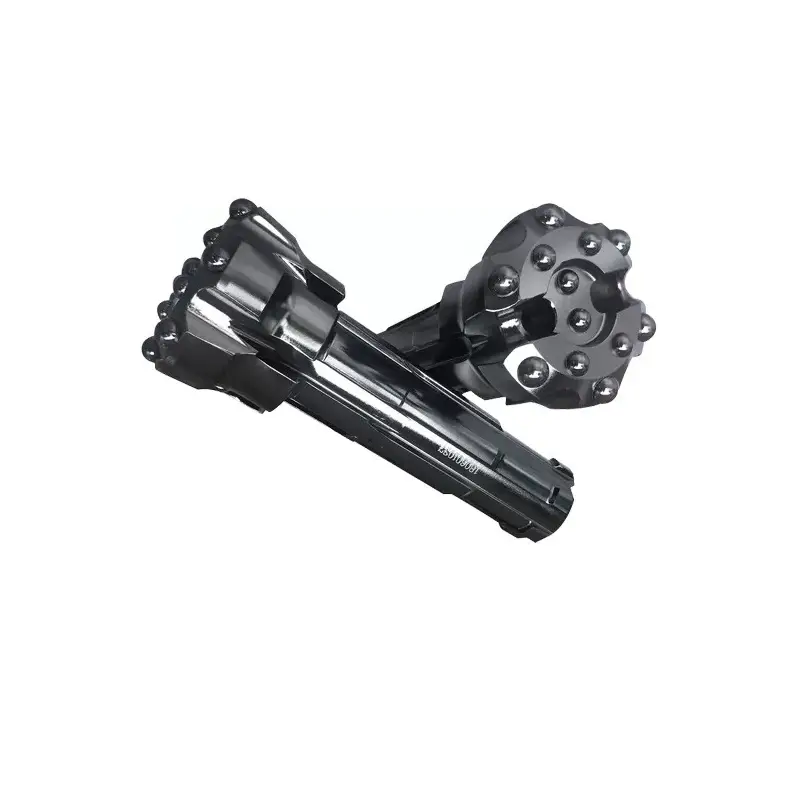
rC drill bits
As a supplier of reverse circulation (RC) drill bits, we offer a comprehensive range designed for efficient and accurate subsurface sampling. Our RC drill bits are engineered for optimal performance in diverse geological formations, ensuring sample recovery with minimal contamination. We provide durable and reliable solutions to support your mineral exploration and mining projects, contributing to enhanced productivity and cost-effectiveness. Contact us for your RC drill bit needs.
rC Tricone drill bits
We supply robust RC tricone drill bits, engineered for demanding reverse circulation drilling applications. These bits combine the efficiency of tricone technology with the sample integrity required in RC drilling. Designed for effective penetration in various rock formations, our RC Tricone drill bits offer durability and reliable performance, contributing to enhanced drilling productivity and accurate subsurface evaluation for mineral exploration and mining operations.
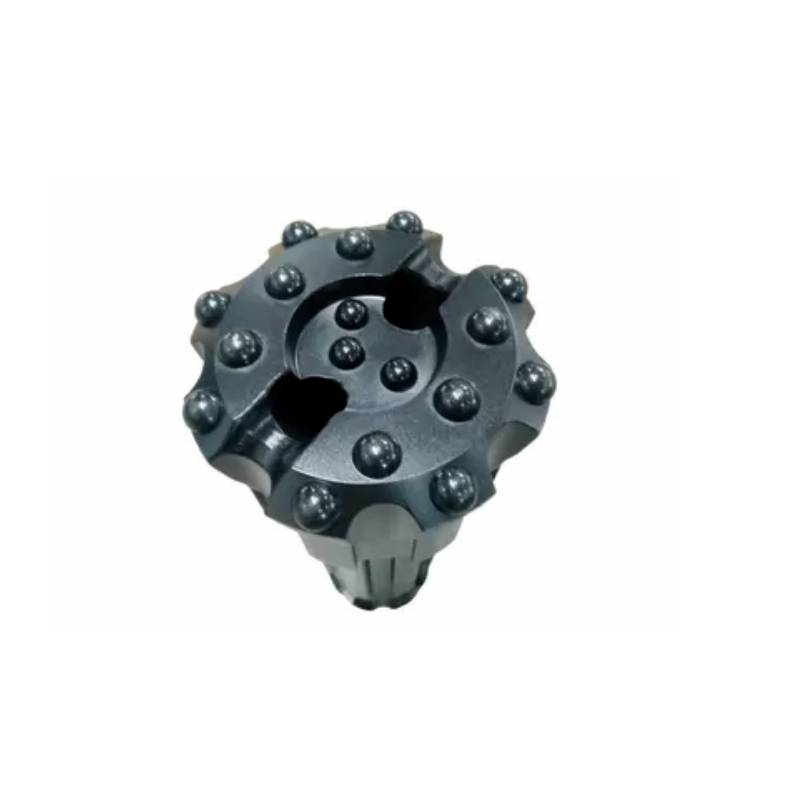
RC Reverse Circulation Dth Drill Bits for Deep Exploration Drilling
We supply robust RC (Reverse Circulation) DTH (Down-The-Hole) drill bits specifically engineered for deep exploration drilling. Our bits ensure efficient penetration and reliable sample retrieval from significant depths. Built for durability and performance in demanding conditions, our RC DTH drill bits are your trusted solution for accurate subsurface investigation, maximizing productivity and minimizing operational costs.
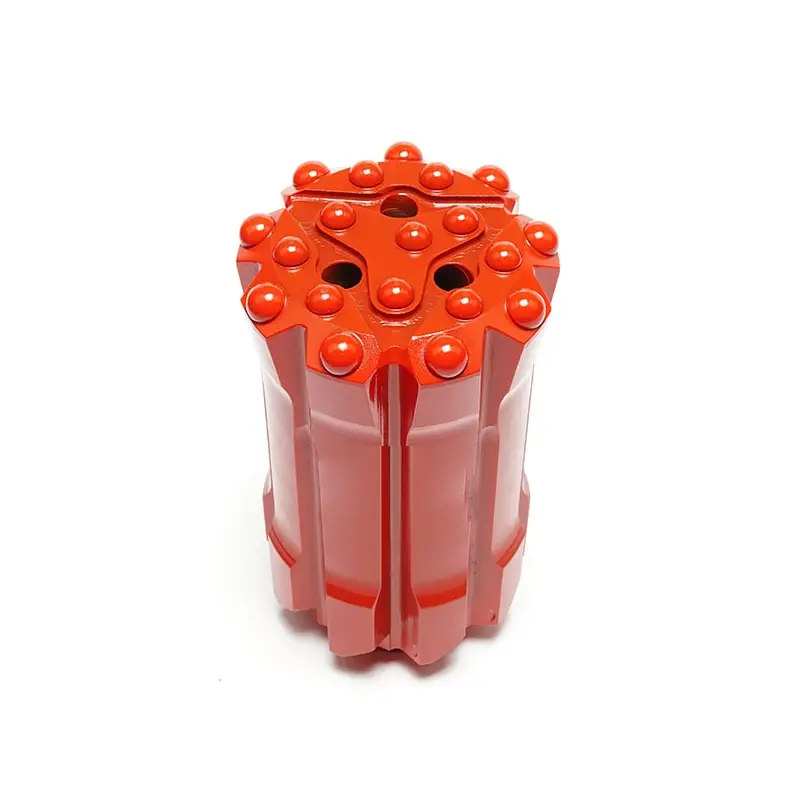
rC threaded button drill bits
As a manufacturer of RC threaded button drill bits, we offer a comprehensive range designed for efficient reverse circulation drilling. Our button bits are manufactured with high-quality materials for durability and optimal penetration in diverse rock formations. The threaded connection ensures secure and easy attachment to drill strings, contributing to reliable sample recovery and enhanced drilling productivity for your exploration and mining needs.
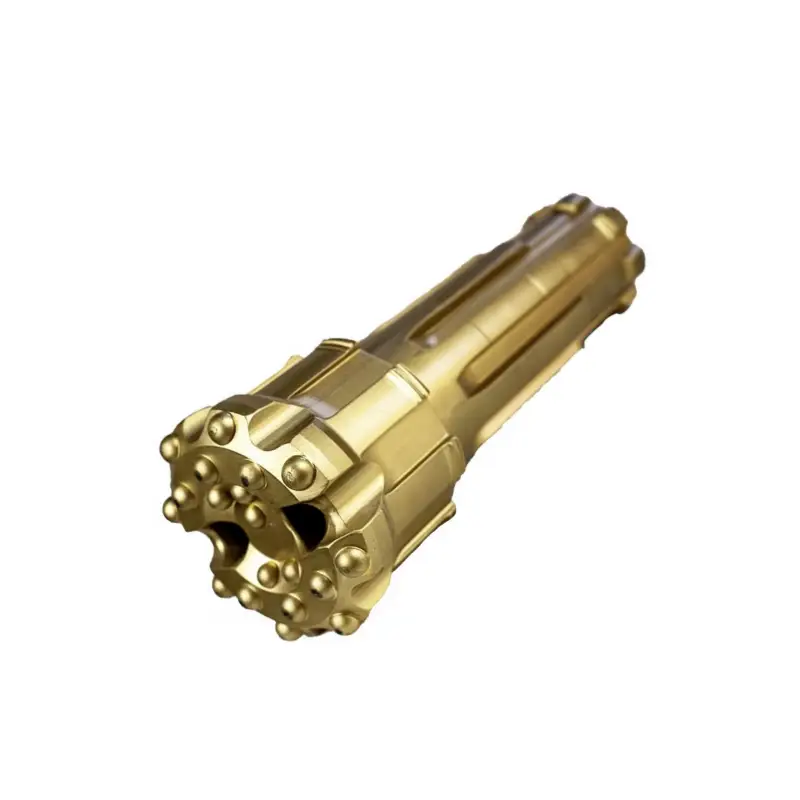
rC drill bits for metal
As a leading supplier, we offer a wide range of robust RC drill bits specifically designed for metal sampling in reverse circulation drilling. Our RC drill bits ensure efficient penetration and reliable retrieval of uncontaminated metal samples for accurate analysis. Engineered for durability and performance, they contribute to cost-effective and productive exploration projects. Contact us for high-quality RC drill bit solutions tailored to your metal exploration needs.
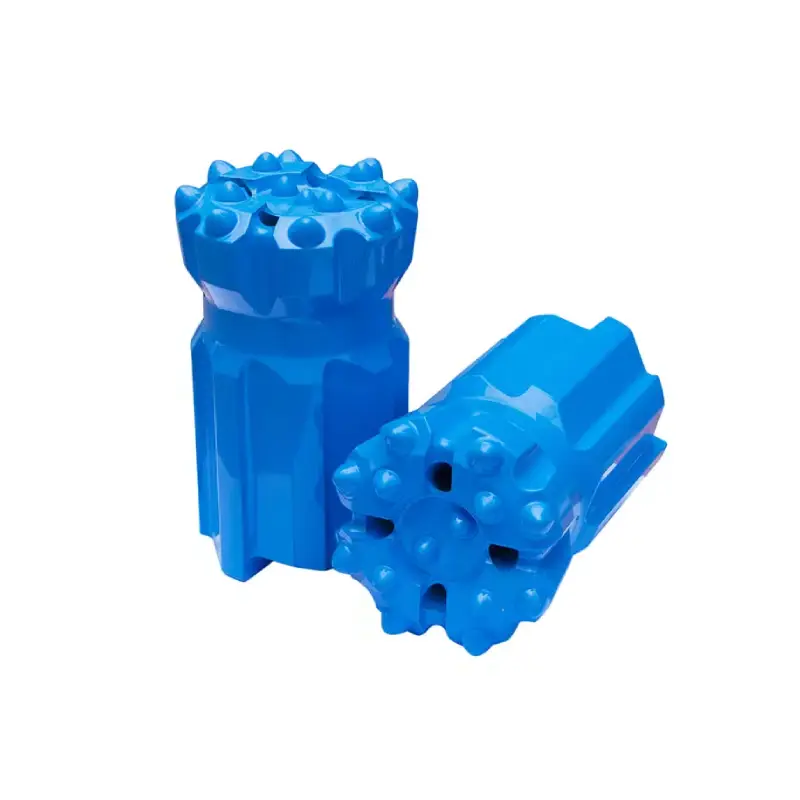
rC carbide thread button drill bits
As a supplier of RC carbide thread button drill bits, we offer high-performance drilling tools engineered for demanding reverse circulation drilling. Our carbide button drill bits feature durable carbide buttons and robust thread connections, ensuring efficient penetration and reliable sample recovery in various geological formations. We provide a range of sizes and designs to optimize your drilling operations, delivering both productivity and longevity. Contact us for your specific RC drilling needs.
Customize Your Desired RC Drill Bit
Diameter and Airflow Configuration
We tailor the bit diameter to match your specific drilling requirements and hole size targets. We optimize airflow with strategically placed jets and internal channels to efficiently evacuate cuttings, ensuring clean drilling and maximizing penetration rates in your particular geological conditions.
Button Design and Carbide Grade
We help you select the ideal button shape (spherical, ballistic, conical) and arrangement to best suit the rock formation’s hardness and abrasiveness. We offer the appropriate carbide grade for enhanced wear resistance and longevity, balancing cost-effectiveness with optimal drilling performance and extended bit life.
Thread Type and Connection
We provide the thread type (e.g., API REG, BECO) that is compatible with your drill string and ensures a secure and reliable connection. We consider thread size and design for optimal torque transfer and resistance to wear and tear during demanding reverse circulation drilling operations.
Flushing Hole Arrangement and Size
We customize the number, size, and placement of flushing holes to optimize the removal of drilling debris and maintain efficient cutting action. Proper flushing prevents clogging, reduces wear on the bit and drilling tools, and ensures accurate sample recovery in various subsurface environments.
what is a RC drill bit?
An RC (Reverse Circulation) drill bit is a crucial component in the RC drilling method, a technique widely used in mineral exploration and mining.
This robust drill bit, typically made with tungsten carbide buttons, is driven by a pneumatic hammer located downhole.
As the bit percussively crushes the rock, the cuttings are forced up through an inner tube within the drill string to the surface, allowing for continuous and relatively uncontaminated sample collection for geological analysis.
What does RC mean in drilling?
In the industry of drilling, RC stands for Reverse Circulation. It refers to a drilling technique where the cuttings, or broken rock fragments, are returned to the surface through an inner tube within the drill string, as opposed to conventional drilling where they are flushed out of the borehole annulus.
This reverse flow of cuttings is achieved by injecting compressed air down the outer annulus of the drill string, which then lifts the sample-laden air and cuttings up the inner tube, providing a cleaner and more representative sample for geological analysis.
What size is RC drilling?
RC (Reverse Circulation) drilling typically involves borehole diameters ranging from 3.5 inches (approximately 89 mm) to 9 inches (approximately 229 mm).
The most common sizes tend to fall within the 4 to 6 inch (approximately 102 to 152 mm) range, as these offer a good balance between sample volume, penetration rate, and operational cost.
Larger diameter RC drilling is possible but generally less common due to increased power requirements and equipment size.
Here’s a breakdown of typical RC drilling sizes:
- Small Diameter: 3.5 inches (89 mm) – Often used for initial exploration and shallow sampling.
- Common Range: 4 inches (102 mm) to 6 inches (152 mm) – Provides a good balance of sample size and drilling efficiency for various exploration and grade control applications.
- Larger Diameter: 7 inches (178 mm) to 9 inches (229 mm) – Employed when larger sample volumes are required, often in resource definition or grade control drilling, but may involve higher operational costs.
What is the difference between AC and RC drilling?
AC (Air Core) drilling and RC (Reverse Circulation) drilling are both methods used for subsurface investigation, but they differ significantly in their techniques and capabilities.
AC drilling typically utilizes a rotating drill bit with compressed air to remove cuttings from the borehole. The cuttings are usually blown up the outside of the drill pipe. This method is generally faster and more cost-effective for shallower exploration in softer, unconsolidated materials. However, sample quality can be compromised due to potential contamination and loss of finer material.
RC drilling, on the other hand, employs a downhole hammer powered by compressed air to crush rock. A key distinction is that the cuttings are forced up through an inner tube within the drill string to the surface.
This reverse circulation of the sample minimizes contamination and provides a larger, drier, and more representative sample, making it suitable for deeper drilling and more accurate geological analysis, particularly in mineral exploration.
Here are the key differences of RC drilling and AC drilling:
AC Drilling:
- Relies on a rotating drill bit and air to lift cuttings up the outside of the drill pipe.
- Generally faster and more cost-effective for shallow drilling.
- Often used in softer, unconsolidated formations.
- Sample quality can be lower due to contamination and loss of fines.
- Utilizes a downhole hammer and reverse circulation to bring cuttings up an inner tube.
- Suitable for deeper drilling and harder rock formations.
- Provides larger, drier, and less contaminated samples.
- Generally more expensive than AC drilling.
Is RC better than percussion drilling?
RC (Reverse Circulation) drilling can be considered better than traditional percussion drilling in specific contexts, particularly when high-quality, uncontaminated samples are crucial. The reverse circulation system in RC drilling ensures that the cuttings are rapidly transported to the surface through an inner tube, minimizing the risk of contamination from the borehole walls or groundwater.
This results in a more representative sample, which is essential for accurate geological analysis, especially in mineral exploration and grade control. Furthermore, RC drilling often provides larger and drier samples compared to conventional percussion methods, simplifying sample handling and processing.
However, traditional percussion drilling, which typically uses air or water to flush cuttings up the annulus of the borehole, can be more cost-effective and faster in certain applications, especially for shallower holes in softer formations where sample contamination is less of a concern.
Percussion drilling equipment is often simpler and more readily available. Therefore, the “better” method depends heavily on the specific project requirements, including the depth of drilling, the type of formation, the need for sample integrity, and budgetary constraints.
Send Your Inquiry Now
All-in-one RC Drill Bit Solutions for Your Project
We provide various RC drill bit solutions tailored to your project needs. Our range includes various sizes, carbide grades, and button designs, ensuring optimal performance in diverse formations. From initial exploration to grade control, our durable and efficient RC drill bits deliver reliable sample recovery and enhanced drilling productivity. Partner with us for quality, customization, and expert support to achieve your drilling objectives seamlessly.


